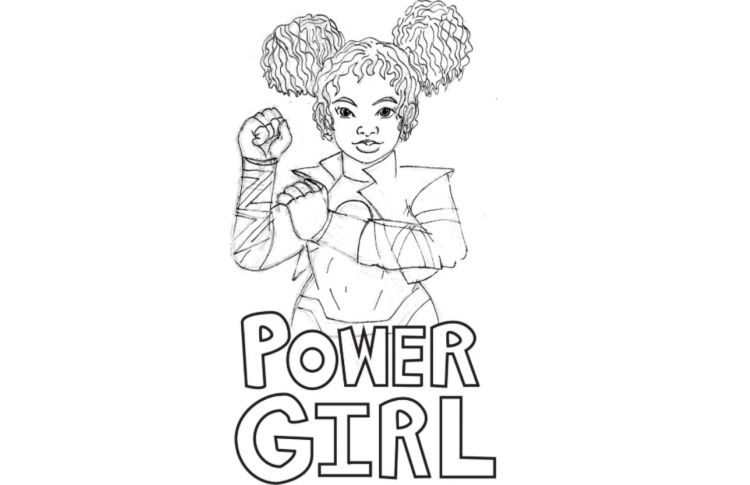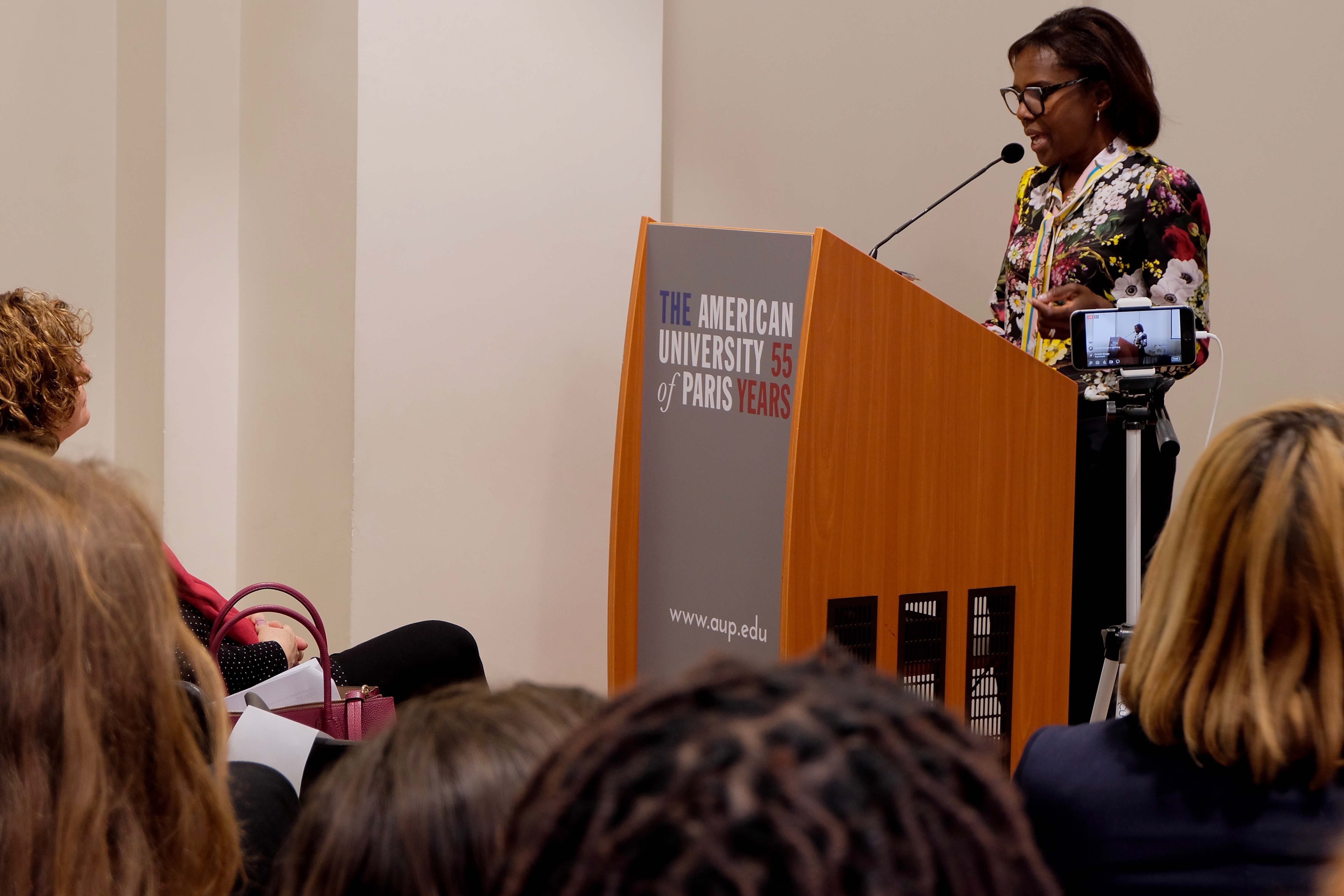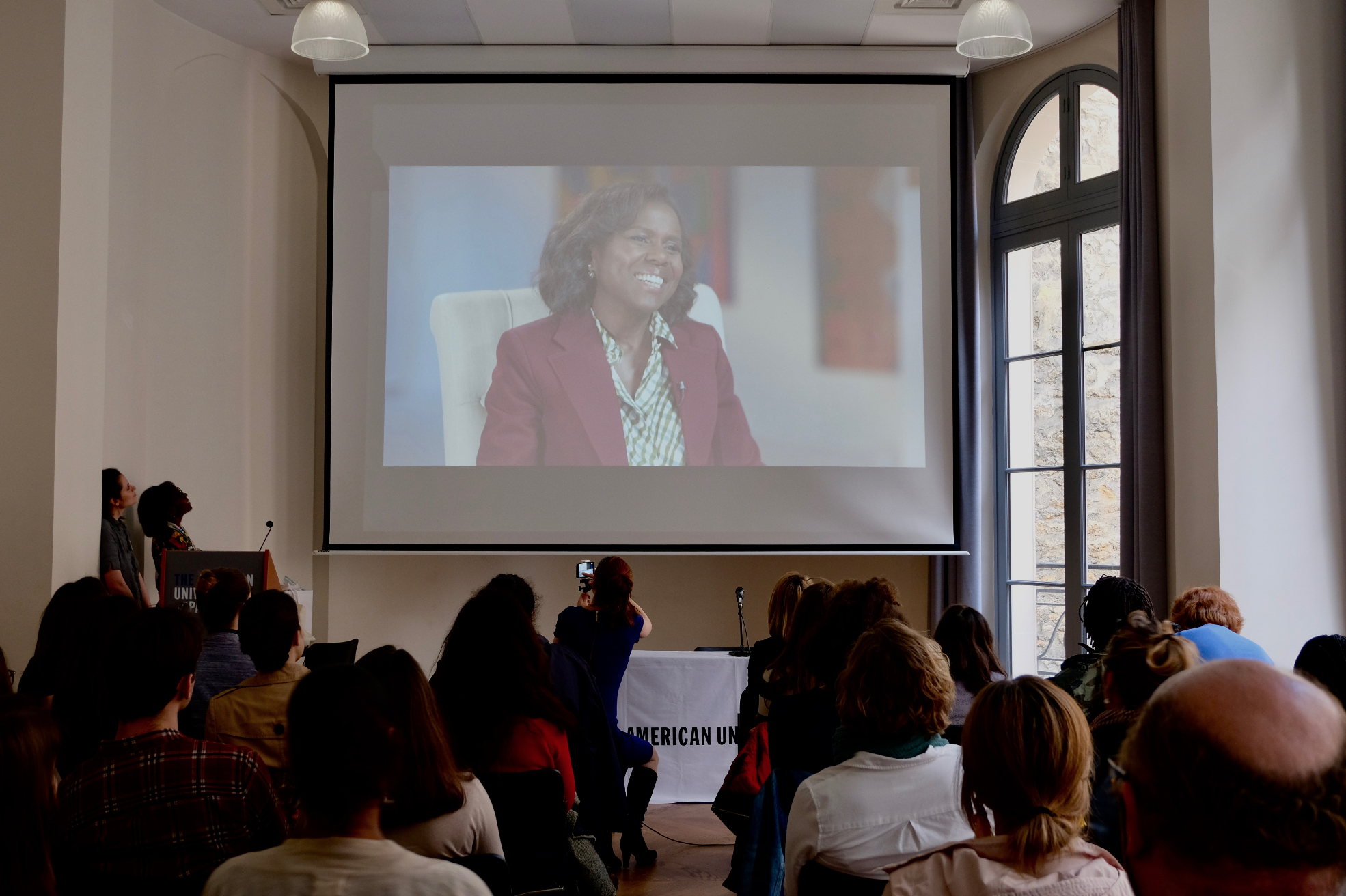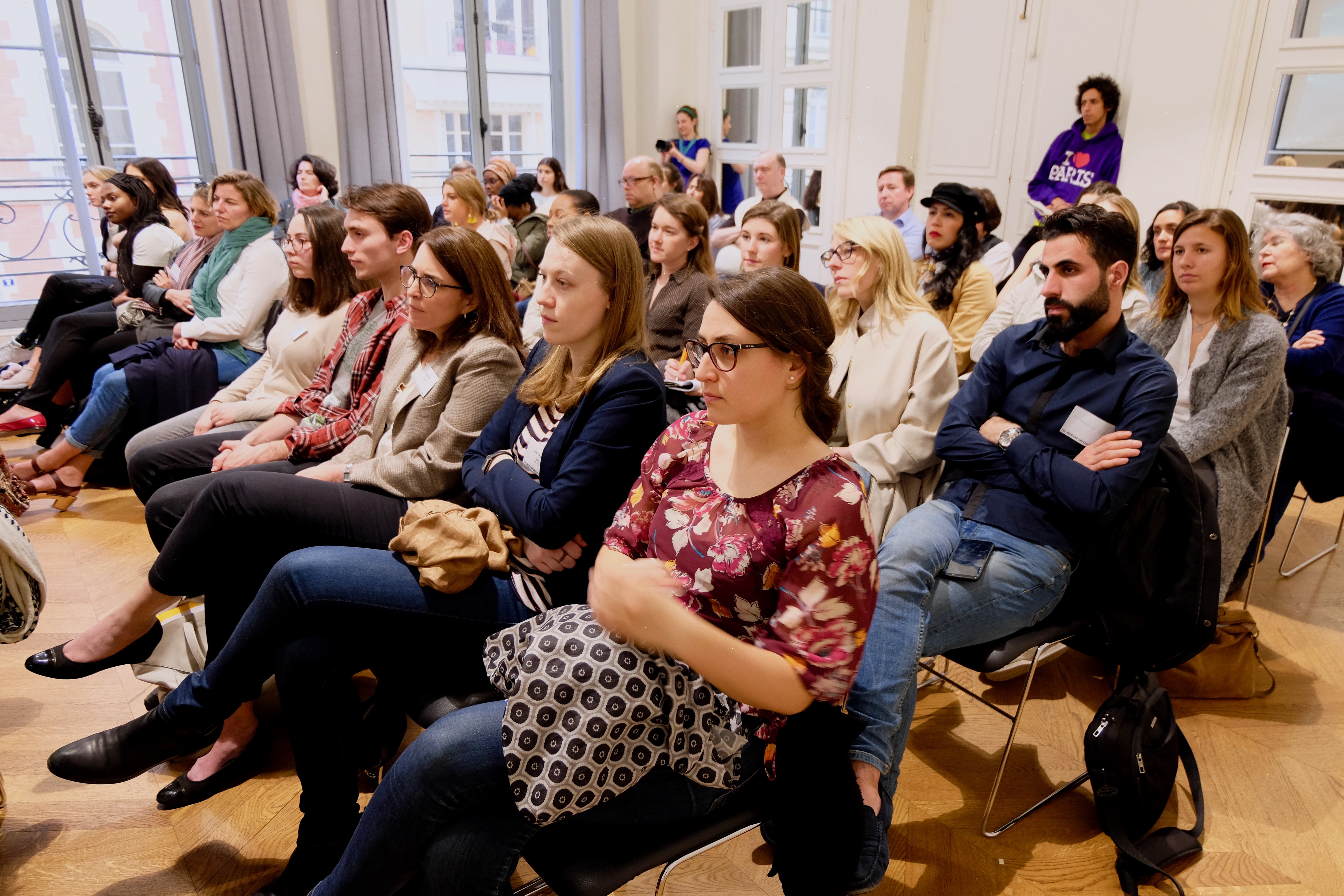Deborah Roberts on Reaching Great Heights Without Being Superwoman

In the constant debate about the professional and personal obstacles women face in their everyday lives, award-winning journalist Deborah Roberts shared her insights on women's empowerment. Can we be successful and happy in the #MeToo era? How do we, as women and men create a relaxed environment in which we can dialogue towards progress?
The President of AUP Celest Schenk introduced her on April 16 by speaking of her multiple accomplishments, including her coverage of the 1992 Barcelona Olympics, her Clarion award for her 20/20 story on abuse in the Amish community, her intimate profile of Michelle Obama, her journey to Africa on a genealogical mission, and her coverage on the aftermath of the Rwandan genocide.
Award-winning host, news veteran Deborah Roberts was speaking at AUP about the #MeToo era. Image Credit: Teresa Segovia
President Schenck described her style by commenting on her co-written book with Al Roker, her husband of twenty-two years. "Roberts draws upon her personal experience from her childhood growing up in the segregated South in the 1960's to later on raising a family with Al Roker," President Schenk said. "She candidly discusses something that every mother knows, called 'mom guilt' and the challenge of balancing family obligations with a demanding career. She is an inspiration, and quickly someone we would all call a superwoman. With her innate humility and poise, she is here tonight to talk to us about reaching great heights without being superwomen." President Shenck also spoke about Roberts' distinctive style, and how "she consistently produces extraordinary narratives with her characteristics as a sensible journalist with a wide range of reporting which is never biased, established in the principle that in sharing stories we build bridges."
Roberts spoke about her journey, where she has been and where she is going, saying, "It still astounds me when I am standing in front of a group like this, in my childhood growing up, not a lot of people would have predicted that I would end up right here. I'm just awed by the fact that this is where I would end up, giving a lecture in Paris on a Monday evening. Now, though, I live a comfortable life in New York City as a mom and a wife and a network correspondent who is privileged enough to travel all over the world, this maybe is not the life that some may have imagined for me growing up in segregated Georgia." She continued to speak about the current issues which we face in this global, cultural shift.
In essence, building bridges was a theme in Roberts' discussion. She emphasized the importance of having men as our allies in the process of stabilizing this "bumpy world that we are in right now." She joked about how she expected a room full of estrogen but was delightfully surprised at the presence of some testosterone as well.
"Now we've all read many of the #MeToo stories, many of the painful stories... a tsunami of emotion has been spilling for months now. Well, now it's time for the hard part, deciding how we are going to coexist, how we are going to rebuild our lives, our businesses, and our relationships. As a journalist, as a woman and as a mother of a young woman, I have been genuinely interested in this question because we've had this massive purge," Roberts said. "But will it truly make a difference as we go forward? Are men and women ready to talk about our differences? Perceived and real? And most important, are men now the enemy? I certainly don't think so, I have a husband and a son, and I hope they will be allies with us in this fight. We need men as allies if we are going to see this new world order, if not, we may very well see a backlash and return to the old practices and business as usual."
Image Credit: Teresa Segovia
Chloe Johnson, a student at AUP, said, "I'm fortunate that my dad, AUP alumni, received the email about the Deborah Roberts talk and encouraged me to go. I think its equally important to have male figures in your life to encourage gender equality as it is to have prominent female figures. This issue should be inclusive, meaning that men should be able to be a part of the conversation and voice their feelings in safe spaces of learning, without fear of judgment. This goes back to what Deborah said in her talk about workshops designed to promote gender equality in the workplace can often backfire because men often leave them feeling guilty and confused. I think that sort of mentality is not productive and we should work toward an environment in which we all feel comfortable, equal and free to ask questions."
Roberts conveyed how women around the world have perpetuated change successfully, saying, "I was invited to an event at the United Nations; it was commemorating the twenty-second anniversary of the Rwandan genocide. Nearly a million men, women, and children were viciously slaughtered, slaughtered by neighbors because of their ethnic background. And the country struggled to try to get back on its feet one in which now women are playing a very central role. Did you know that Rwanda is the only country right now, in the world, where more women than men are serving as elected officials? A lot of the men were lost in the violence, but the fact is the women stepped up and helped rebuild this country. Politically and economically they've created a little marvel in that country."
"But ladies, we've got a lot of work to do if we want to see the kinds of change that we want as women, with men as our allies."
She continued to convey how as women we are more alike than we are different. How our struggles with pay and inequality, and harassment are persistent. Roberts said, "We've got a lot on our plate, which might explain why in a survey when asked whether they would like to have sex or chocolate, a lot of women wanted to know, what kind of chocolate?" The laughter in the audience was contagious as it was a stress relief in the midst of serious topics. Roberts managed to speak about significant issues while still lightening the mood. Which was also emblematic of her discussion, she mentioned how it was important for everyone to "chill" a little bit and that way we could have a productive dialogue without a tense environment. Her confidence and charm managed to keep everyone engaged and have a powerful reflection with a sense of tranquility.
The audience was engaging with Deborah Roberts' conference. Image Credit: Teresa Segovia
An important point she made was on the role of women supporting other women on the road to success. She talked about how the voice of a teacher encouraged her to pursue her dreams. What a difference we can make in each other's lives, Roberts pointed out, saying, "We as women are waiting for someone to believe in us, that there is something that we can contribute to this world."
Roberts' conveyed how appreciative she is of her daughter, Leila Roker who is a student at AUP. She relayed a charming anecdote of how when she was young, and people assumed someone was a man she would question, "How do you know it's a guy?"
Leila Roker said, "It is fascinating to remember she's done so much in her lifetime. How she grew up in such a different generational time than I did, how I grew up in New York, and my mom had to deal with so much, she has a wider perspective, so it's cool. It was a proud moment as a daughter." Generations of women have supported each other in the past, as Roberts said her mother inspired her, and she, in turn, encourages her daughter Leila. As for the audience, it was heartening to see how we as women can learn from each other and most importantly help each other.










